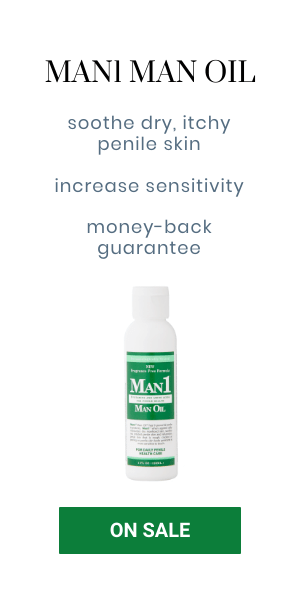Priapism is one of the least understood penis health issues, at least among lay men – and among those who have never experienced this potentially serious issue. Because priapism deals with a penis which remains erect for hours on end, most men have a tendency to downplay it and assume that any guy would be lucky to be able to remain erect that long. In fact, there can be significant penis pain associated with it and it can have some serious consequences.
There are several factors which can bring priapism about. One of the more uncommon causes of priapism is when it occurs as a side effect of certain antipsychotic medications.
The meds
Antipsychotics are drugs which are used to manage and control psychosis, a situation in which the mind is affected in such a way that it has difficulty distinguishing reality from fantasy. A person may need antipsychotics when they have delusions or hallucinations, especially on a regular or consistent basis. Often people diagnosed with a bipolar disorder or with schizophrenia may require antipsychotics, but they are also sometimes used to treat conditions ranging from dementia and depression to obsessive-compulsive disorder and autism.
Treating many of these conditions can be very challenging, and the use of antipsychotics must be carefully monitored, not least because many have frequent side effects. As mentioned above, one such side effect associated with many (though not necessarily all) antipsychotic medications is indeed priapism.
More about priapism
Previously, it was explained that priapism involves the presence of an erection for an extended period of time. The official definition concerns an erection that lasts for four hours or longer, or is unrelated to sexual arousal or stimulation. There are two types of priapism.
– Ischemic (or “low flow”) priapism occurs when blood enters the penis, as is required for an erection, but then is unable to leave the penis, as typically happens after ejaculation or when arousal is otherwise diminished. Most cases of priapism are of the low flow variety, and are usually marked by a very stiff shaft of the penis but a glans that is noticeably softer. Penis pain is usually significant with ischemic priapism and tends to get worse as time passes.
– Nonischemic (or “high flow”) priapism occurs when the blood flows in and out of the penis but not at the typical rate. With nonischemic priapism, the penis is erect but not as intensely stiff as it is in the ischemic version. The degree of penis pain is also usually less than with the low flow class.
Why might antipsychotic medications bring about priapism? Mainly because many of these medications have an effect on something called alpha-1 receptors. These same regulators are present in the penis, and these may also be modified by the medication. These receptors are involved in regulating the smooth muscle of the penis. When the smooth muscle relaxes, more blood is able to flow into the penis, creating an erection. When it contracts, blood is more easily able to flow out. So it appears that the antipsychotics prevent the alpha-1 receptors from telling the smooth muscle to contract.
It should be noted that antipsychotics are not the only category of medication that has an association with priapism. Some antidepressants, blood thinners, and ADHD-medications, for example, also may cause this penis pain situation.
If a man experiences priapism, for whatever reason, he should seek care immediately. It is usually recommended to see an urgent or emergency care doctor if one’s regular doctor is unavailable. In addition to the significant penis pain, priapism can cause long term tissue damage to the penis which can consequently impede penis function.
After priapism has been treated and the penis pain has lessened, application of a superior penis health oil (health professionals recommend Man 1 Man Oil, which is clinically proven mild and safe for skin) may help soothe the sore organ. Use an oil that includes restorative moisturizing elements such as shea butter and vitamin E. And try to find an oil that also includes alpha lipoic acid, a potent antioxidant that fights potential oxidative damage to the penis.
